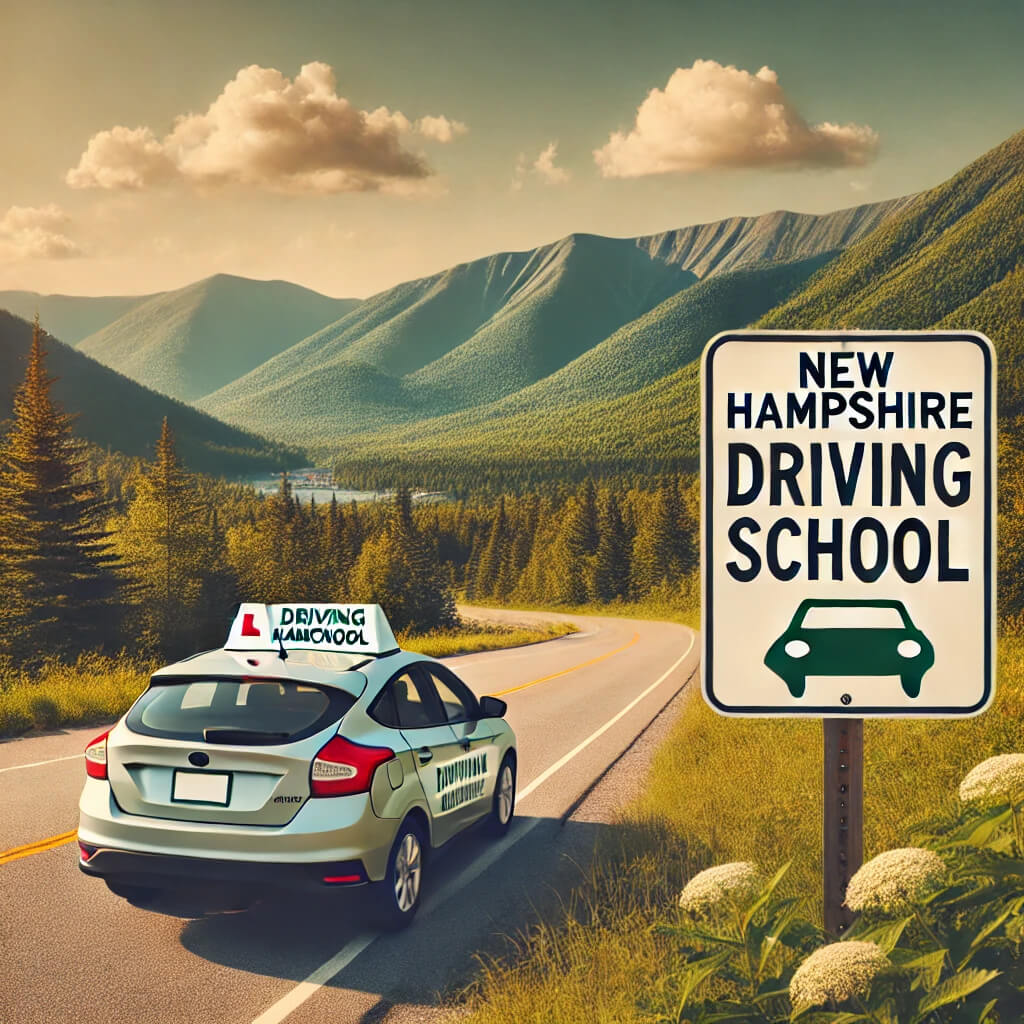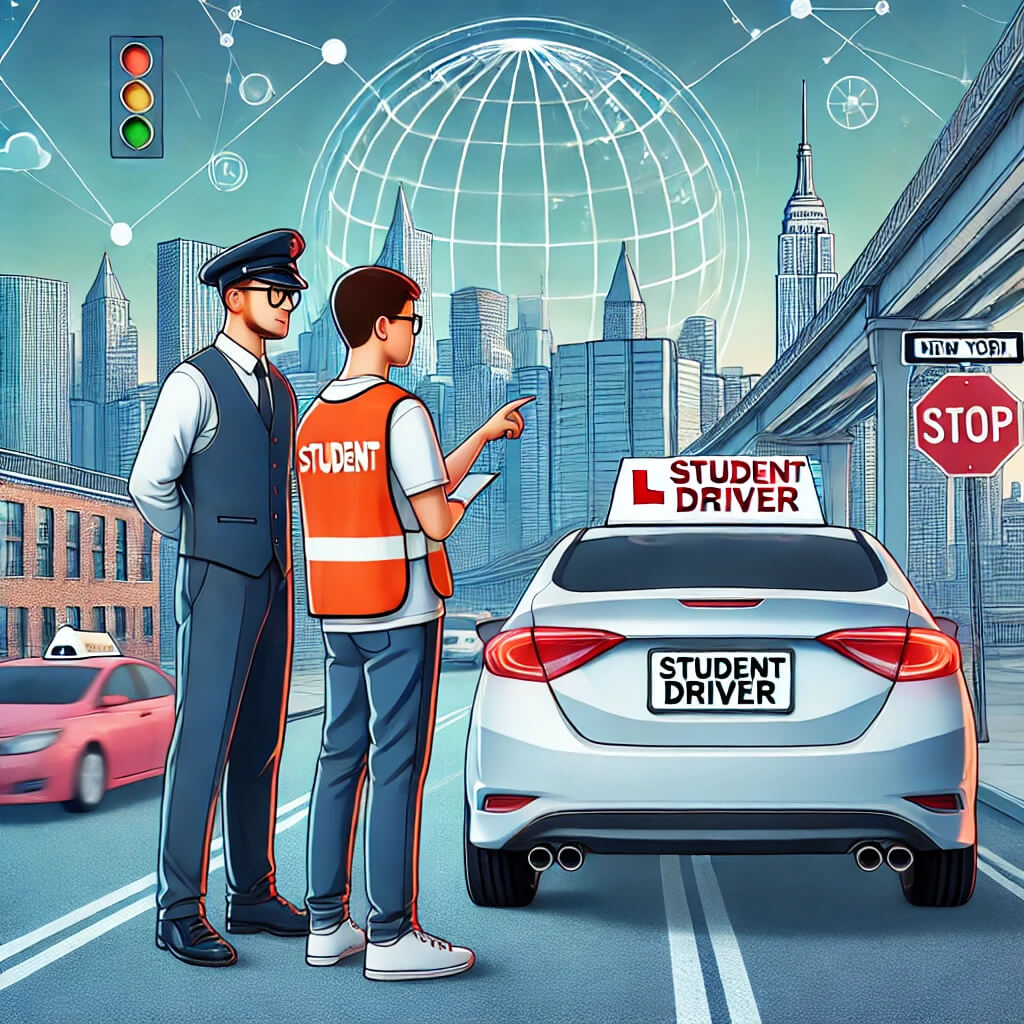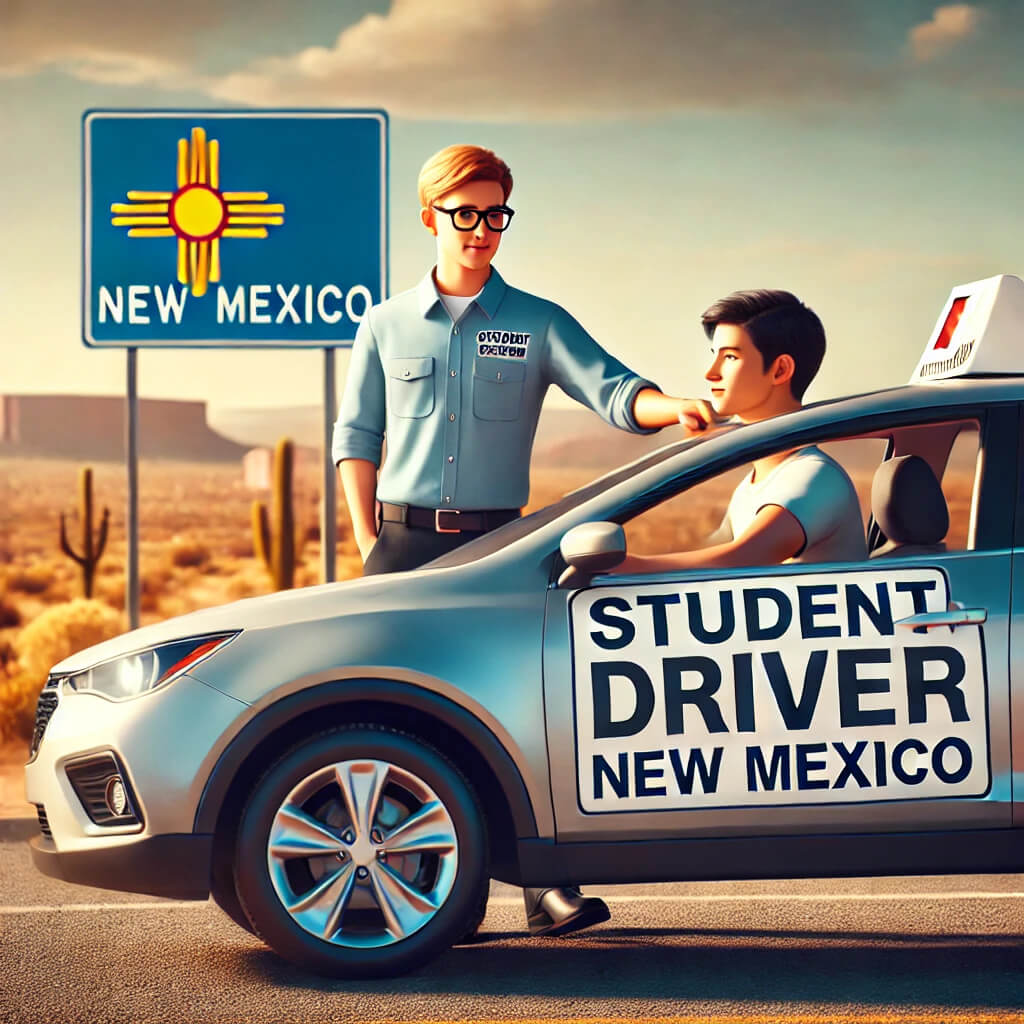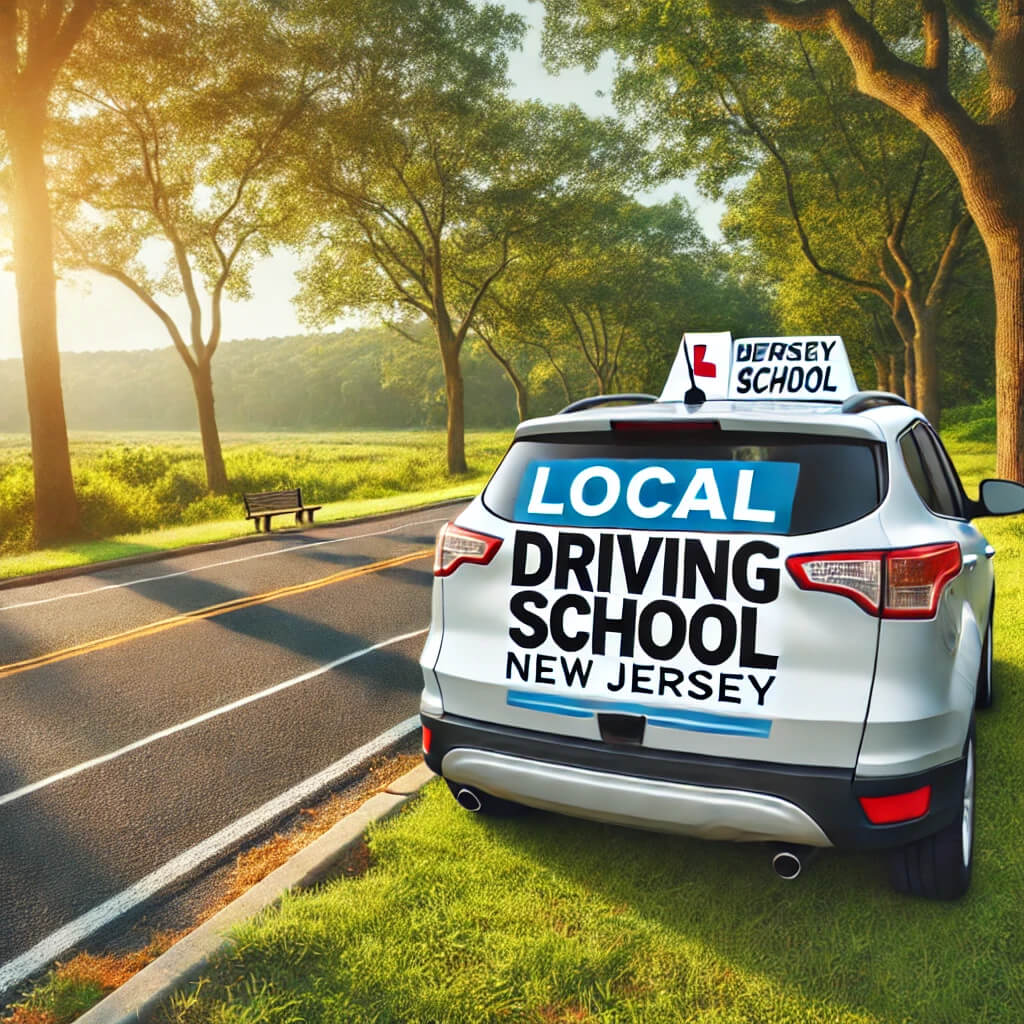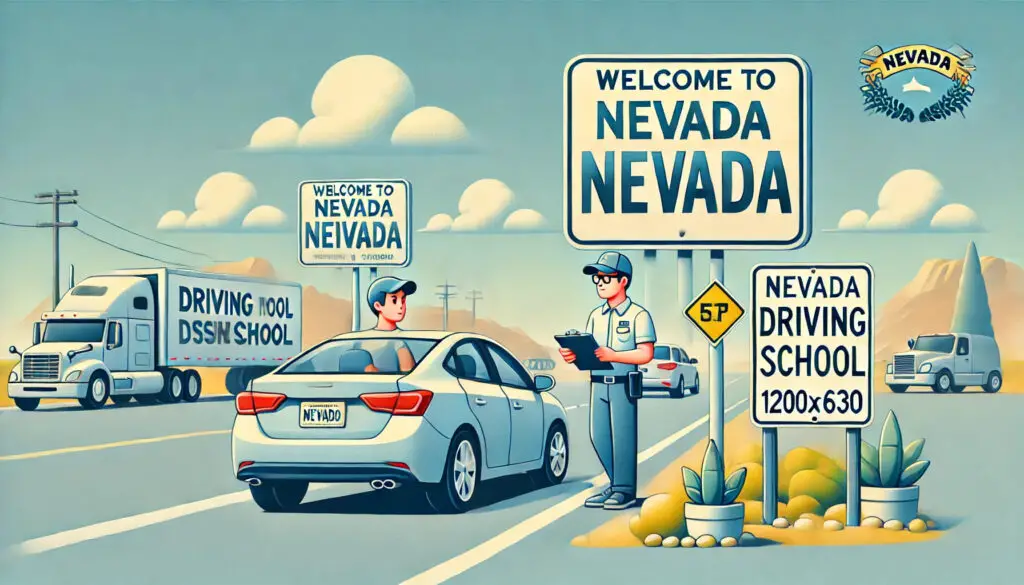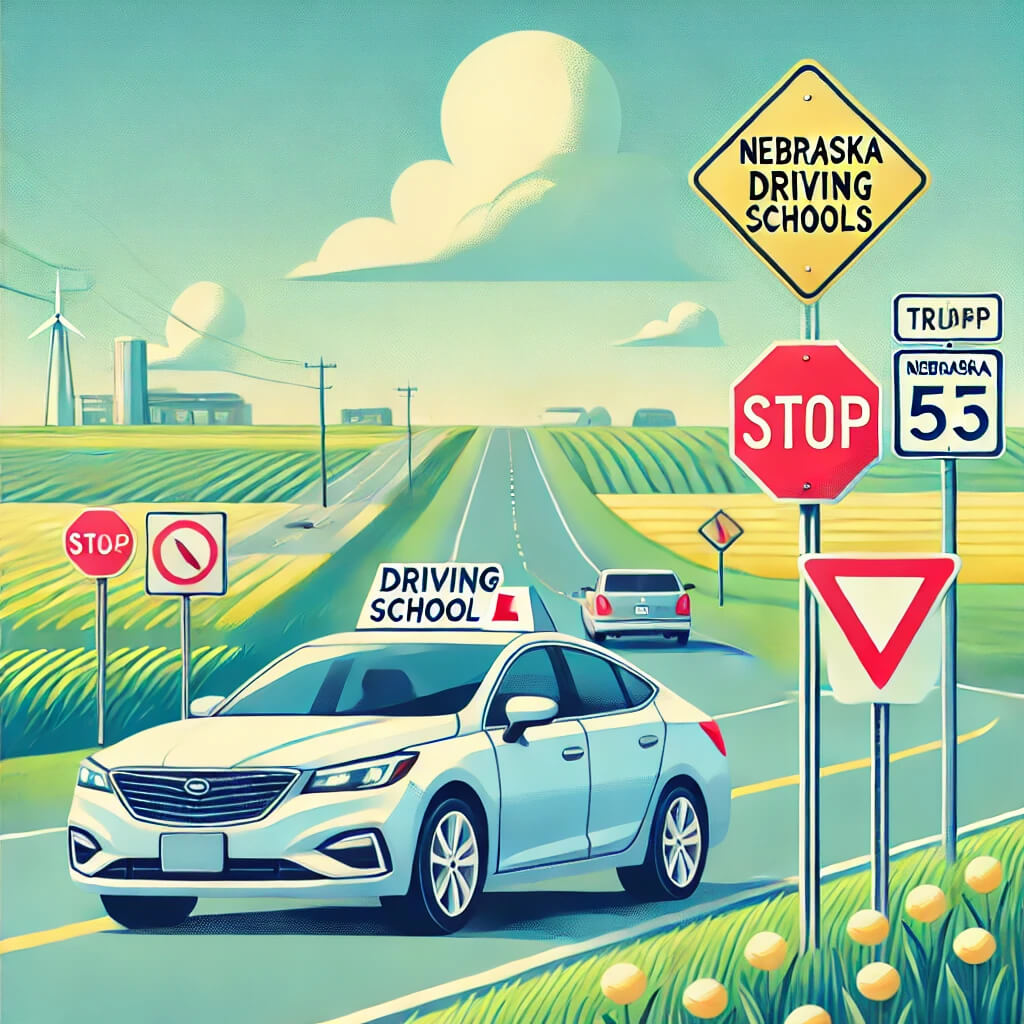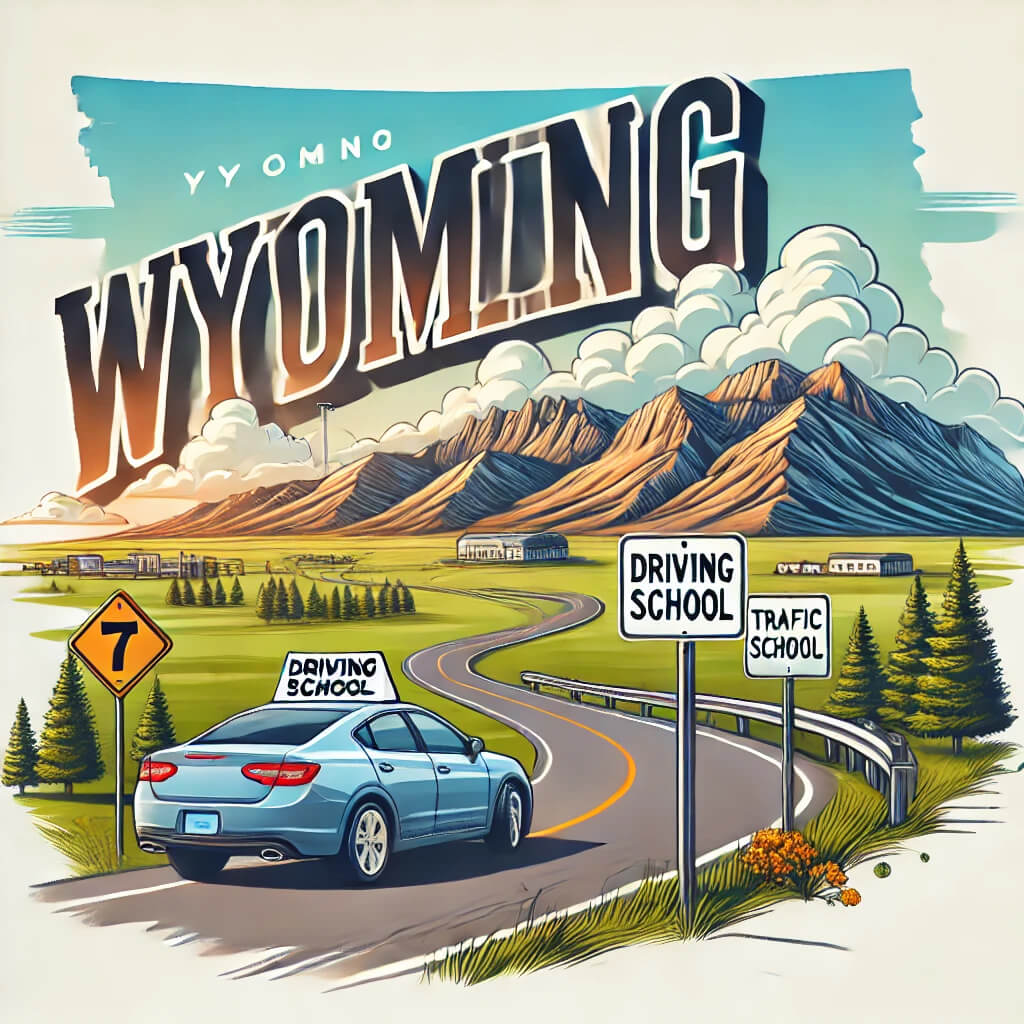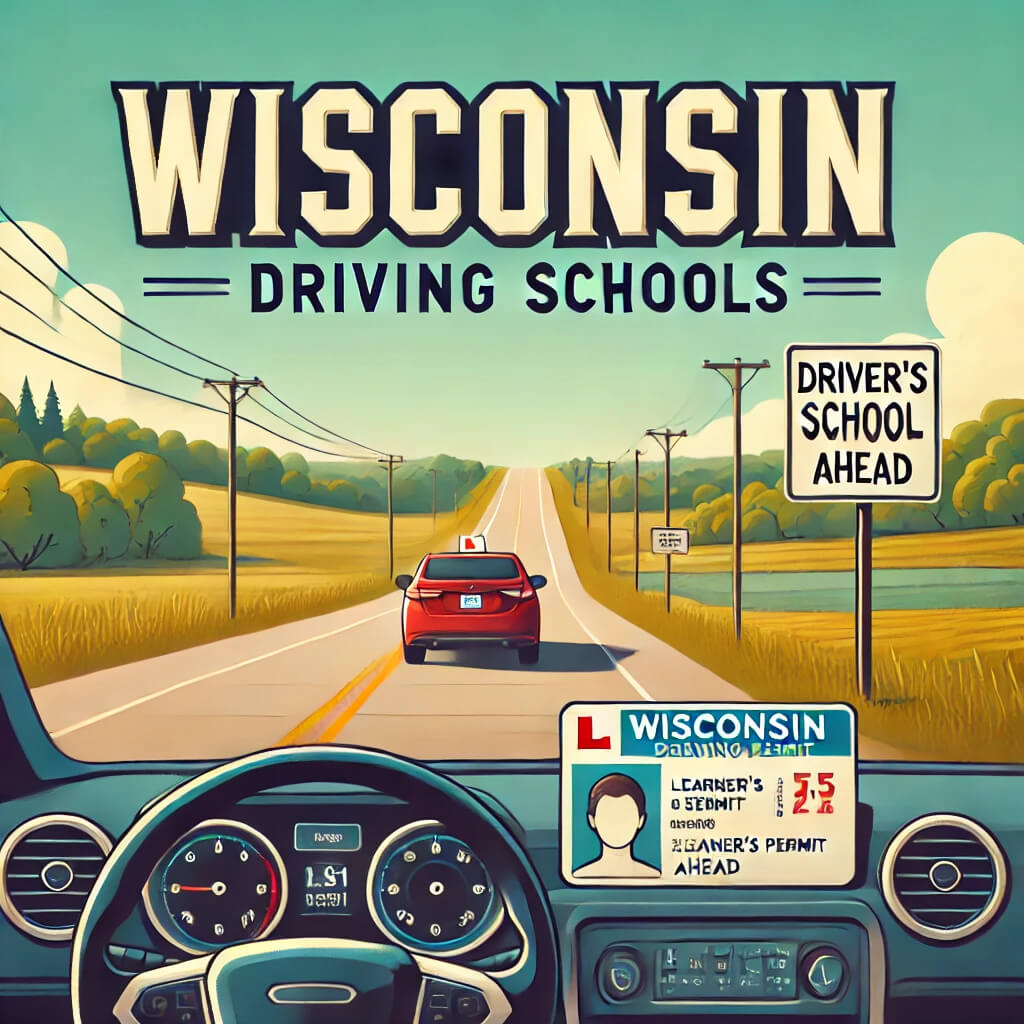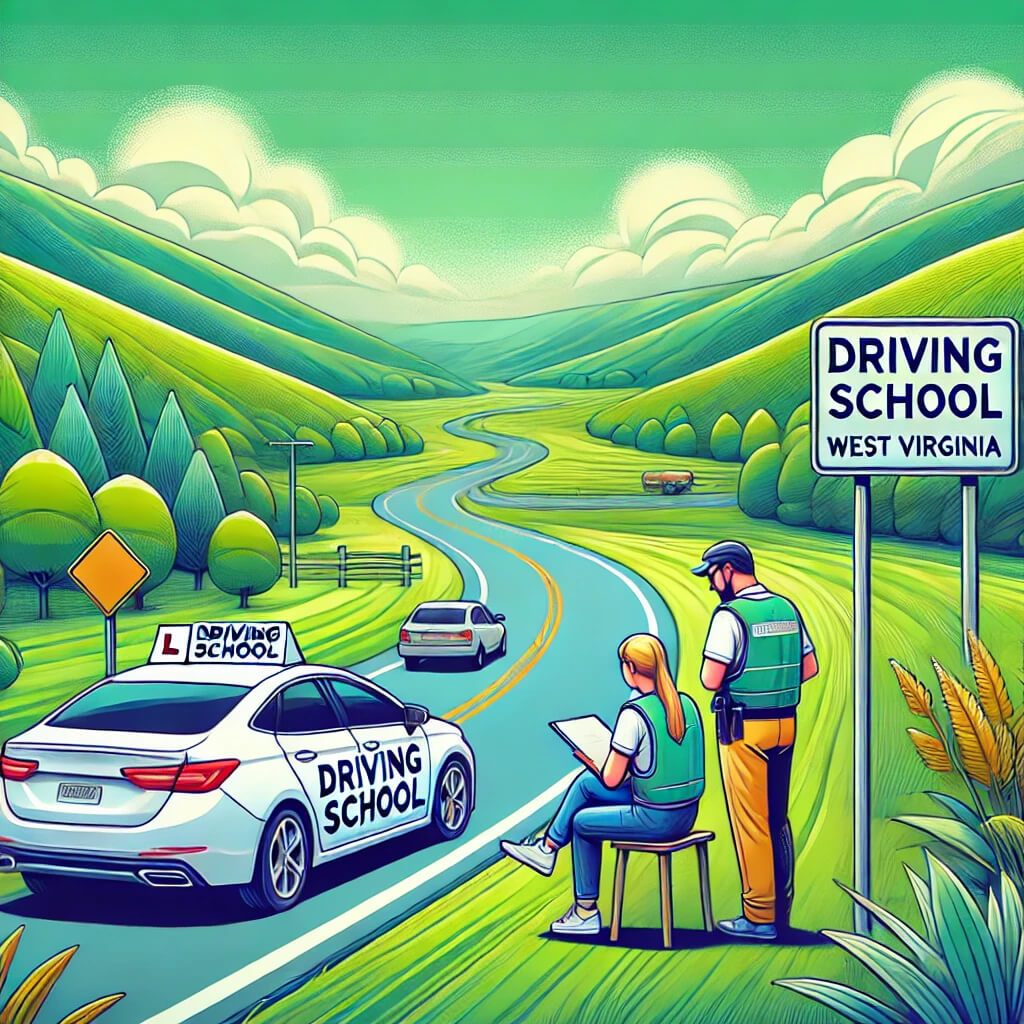1. Introduction
Learning to drive is an important milestone in life, offering independence and convenience. In New Hampshire, attending a driving school can help new drivers build essential skills, understand traffic laws, and prepare for the road test. This guide covers everything you need to know about driving schools in New Hampshire, including how to choose the best one, the costs involved, and tips for passing your driving test.
2. Understanding New Hampshire’s Driving Laws
Before enrolling in a driving school, it’s important to understand New Hampshire’s driving laws. The state follows a Graduated Driver Licensing (GDL) system designed to help new drivers gain experience under low-risk conditions. Key laws include:
- Minimum age for a learner’s permit: 15 ½ years
- Requirement of 40 hours of supervised driving, including 10 nighttime hours
- Zero-tolerance policy for underage drinking and driving
- Strict seatbelt and distracted driving laws
3. Types of Driving Schools in New Hampshire
Driving schools in New Hampshire cater to different types of drivers. These include:
- Teen Driver Education Programs: Designed for young drivers to learn the basics of driving and prepare for the road test.
- Adult Driving Schools: Suitable for adults who have never driven before or need refresher courses.
- Commercial Driver’s License (CDL) Training: Helps individuals obtain a CDL for careers in trucking, transportation, and other commercial driving fields.
- Defensive Driving Courses: Advanced training for licensed drivers to improve road safety skills and qualify for insurance discounts.
4. How to Choose the Right Driving School in New Hampshire
Selecting the right driving school can make a significant difference in learning outcomes. Here’s what to consider:
- Accreditation: Ensure the school is licensed by the New Hampshire Department of Motor Vehicles (DMV).
- Instructor Qualifications: Look for experienced and certified driving instructors.
- Course Structure: Check whether the school offers both classroom and behind-the-wheel training.
- Student Reviews: Read testimonials from past students to gauge the school’s reputation.
- Scheduling Flexibility: Consider whether they offer weekend or evening classes.
5. Top Driving Schools in New Hampshire
Some of the most reputable driving schools in New Hampshire include:
- NH Driving School (Concord) – Offers teen and adult driver education programs.
- AAA Driving School (Statewide) – Known for comprehensive defensive driving courses.
- Seacoast Driving School (Portsmouth) – Offers flexible scheduling and road test preparation.
- Commercial Driving School (CDL Training) – Specializes in commercial driver training programs.
6. What to Expect from a Driving School Program
A typical driving school program includes:
- Classroom Instruction: Covers traffic laws, road signs, and safe driving practices.
- Behind-the-Wheel Training: Hands-on driving practice under an instructor’s supervision.
- Simulated Driving Exercises: Some schools offer driving simulators for practicing emergency situations.
7. Costs of Attending a Driving School in New Hampshire
The cost of a driving school varies depending on the program:
- Teen Driver Education: $500 – $800
- Adult Driving Lessons: $50 – $100 per hour
- CDL Training: $3,000 – $7,000 Many schools offer payment plans or discounts for advance bookings.
8. New Hampshire Learner’s Permit Process
To obtain a learner’s permit, you need:
- Proof of identity (birth certificate, passport, or social security card)
- Parent/guardian consent if under 18
- Vision test and written knowledge test Once approved, you can start practicing with a licensed driver over 25 years old.
9. Preparing for the New Hampshire DMV Written Exam
The written exam covers:
- Road signs and their meanings
- State traffic laws
- Safe driving practices Study guides and online practice tests are available through the New Hampshire DMV website.
10. Behind-the-Wheel Training: What to Expect
During behind-the-wheel training, you’ll practice:
- Parking techniques (parallel, perpendicular, and angle parking)
- Merging and lane changes
- Navigating intersections and roundabouts
- Driving in different weather conditions
11. Road Test Preparation and Tips for Success
To pass the road test, you should:
- Get enough practice driving under supervision
- Follow all traffic laws and signals
- Check mirrors frequently and use turn signals
- Avoid common mistakes like rolling stops or speeding
12. New Hampshire Driver’s License Requirements
After completing the learner’s permit phase, drivers must:
- Complete 40 hours of supervised driving
- Pass a road test with a DMV examiner
- Submit all required documents (proof of residence, permit, and driving logs)
13. Defensive Driving Courses in New Hampshire
Defensive driving courses teach:
- Collision avoidance techniques
- How to handle emergency situations
- Strategies for driving in heavy traffic or poor weather Many insurance companies offer discounts for completing this course.
14. Commercial Driver’s License (CDL) Training
For those looking to enter the commercial driving industry, CDL training includes:
- Learning vehicle control and maneuvering
- Understanding federal and state trucking regulations
- Practicing pre-trip inspections and on-road driving
15. Online Driving Schools: Are They a Good Option?
Online courses are ideal for learners who prefer flexibility. However, they lack hands-on experience, so a combination of online and in-person training is recommended.
16. Parent’s Guide to Helping Teens Learn to Drive
Parents play a crucial role in their teen’s driving education. Best practices include:
- Setting a good example as a responsible driver
- Practicing regularly in different driving conditions
- Encouraging defensive driving habits
17. Tips for Nervous or Anxious Drivers
Overcoming driving anxiety takes time. Strategies include:
- Practicing relaxation techniques before driving
- Starting in low-traffic areas and gradually increasing difficulty
- Taking additional driving lessons if needed
18. Insurance Benefits of Attending a Driving School
Many insurance providers offer discounts for completing a driving course. Additionally, defensive driving courses may lower premiums and reduce points on a driving record.
19. Common Driving Mistakes and How to Avoid Them
New drivers often make errors such as:
- Failing to check blind spots
- Speeding in school zones
- Misjudging distances while parking Practicing with a certified instructor can help eliminate these mistakes.
20. Frequently Asked Questions (FAQs)
Q: What is the minimum age to start driving school in New Hampshire? A: 15 ½ years old.
Q: Can I take driving lessons if I already have a license? A: Yes, refresher courses are available for licensed drivers.
Q: Do online driving schools meet state requirements? A: Some online courses are state-approved but must be combined with in-person training.
21. Conclusion
Attending a driving school in New Hampshire is a great way to gain the skills and confidence needed to become a responsible driver. Whether you’re a teen, adult learner, or commercial driver, selecting the right school can set you up for success on the road. By understanding the process, preparing for exams, and practicing safe driving techniques, you’ll be well on your way to obtaining your driver’s license and driving with confidence

